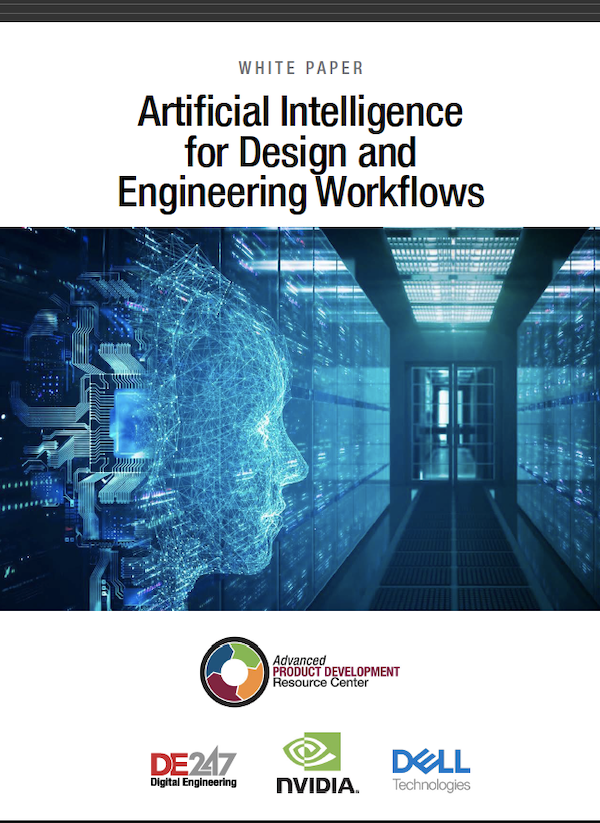Latest News
November 1, 2014
As more engineering firms and departments turn to high-performance computing (HPC) clusters to run their applications and simulations, the need for outside help to manage and maintain these systems has also increased. Because many companies don’t have in-house HPC expertise in the IT or engineering departments, IT consultants can step in to help guide the HPC strategy; in some cases they provide managed services that allow their clients to outsource HPC support.
“A lot of these companies have engineers or researchers that are running commercial applications like Autodesk on desktops, and then realize at some point that they have to go beyond the desktop,” says Deepak Khosla, president and CEO of eXcellence in IS Solutions (X-ISS), a Houston-based HPC consulting and services firm. “The workloads coming in are too large to finish the job in a reasonable amount of time.”
“They are open to a centralized computing model as long as it improves efficiency,” says Rod Mach, president of TotalCAE, an Ann Arbor, MI-based firm that provides cluster installation, support and cloud-based solutions for CAE and CFD applications. “There’s an adjustment period, because it’s a different way of working and there are new things to learn.”
While smaller and mid-size firms are able to deploy HPC clusters on-site, often with the help of their commercial software vendor, they may not have the internal resources to properly maintain and configure the cluster. “Most IT staff are not knowledgeable on HPC clusters because they are Linux-based, and these are more than just a collection of servers,” Khosla adds.
Mach agrees. “Engineering is a specific niche, and corporate IT often doesn’t have the time or resources to invest in learning those applications,” he says. “They want to be able to quickly support new apps, and have them run efficiently.”
In some cases, engineers or researchers wind up helping maintain the cluster. “That usually doesn’t end well,” Khosla says. “First, the value of that person is not in managing the cluster, it’s in engineering. And second, they may be able to make things work for themselves, but they often mess it up for other users in the process.”
HPC consultants can provide guidance that will help direct the firm toward either an on-site or cloud-based solution, comparing the relative return on investment (ROI) for both. “The software we represent has a high computer power demand, and the engineers approach us because their own IT department is focused on a certain way to solve the problem,” says Carl Smith, professional services manager at IMAGINiT, an engineering software and services provider. “When engineers encounter these efficiency problems, often the internal IT staff will suggest buying a new server or adding some more RAM. Often management will task the IT staff with looking for an alternative to spending money on new infrastructure.”
The Outsourced IT Department
When engineering firms turn to consultants for HPC help, typical pain points include:
• they need applications to run more smoothly;
• simulations need to be faster; or
• they are struggling with storage of simulation results.
For cloud-based implementations, users want to know what alternatives are available, and what the security model looks like.
In addition to providing guidance on HPC system selection, IT consulting firms can also provided outsourced IT services that can encompass complete management of the entire HPC infrastructure and applications, including installation, upgrades and all maintenance and troubleshooting.
For companies with on-site HPC resources, these outsourced support services can largely be rendered remotely.
“Once things are set up, the only time you need someone on-site is when the hardware fails or there’s an access problem,” Khosla says. “We can manage everything remotely, even when the hardware dies. As long as it’s in the rack and connected, we can bring it up from the bare bones and redeploy.”
Smaller, and even some mid-sized firms often don’t have a dedicated IT staff, so using outside resources is a familiar model.
“A lot these companies outsource to a varying degree,” says Smith, offering as an example how a contractor might come in “every Tuesday and Thursday and do a health check.”
Mach notes that TotalCAE provides a full outsourced IT department for engineering groups, including all applications, licensing, server maintenance and other services.
“We like that model because no matter what’s going wrong, they come to us,” he says. “There’s only one person to call. You don’t have to try and decide whether the problem lies with corporate IT or us. We’re an island on the corporate network.”
HPC Assessment Process
Companies that are doing an initial HPC evaluation will typically go through an assessment process to determine what type of solution they need, and whether those resources will reside on-site or in the cloud.
As part of that process, the firm should determine whether any quality compliance or government security requirements are in place. “Some of these compliance requirements don’t allow the clusters to be cloud-based,” Smith says.
What kind of workload will the HPC cluster need to handle? “In some cases, the workload requirements are going to knock cloud options out of the running,” Khosla says. “If that’s not the case, then you have to do an ROI calculation. Assuming you have information on how much data you’ll be pulling and storing, you can take the best price and compare that to the cost of handling it internally.”
If you don’t have good information about the workload, proof-of-concept testing can help determine whether a cloud or on-site solution would be better for your business.
Mach says that his company will typically meet with clients to go through the types of applications they are running, determine what their goals are, the turnaround time involved, and how to optimize licenses costs and runtime.
“We take that into account when designing a system or workflow for them,” Mach says. “We work with engineers primarily as the customer. Often there is a meeting with IT, but engineering is the direct interface.”
A cost evaluation is also important, particularly when deciding between on-premise or cloud-based solutions. It may make sense to have cloud computing available so that simulations can run in the background without tying up computers, but in many cases a local solution will be required. Factors to consider include internal networking capabilities, security requirements, compliance issues and cost.
“The main interest in cloud computing is saving money, and the cloud doesn’t always necessarily save you any money,” Mach says. “If you run simulations all day, it saves no money. Licensing is solver-specific, and not every CFD (computational fluid dynamics) solver licensing scheme is pay-as-you-go.”
Cloud deployments don’t require ongoing management, but as Khosla points out, getting set up for a cloud solution is not trivial.
“There are all of these things you have to consider around security, data transfers and workflow, and companies will often need help with that,” he says.
Find the Right Partner
When evaluating potential IT consulting partners for an HPC project, look for companies with experience in your environment and with your enterprise resource planning (ERP) and business systems.
“You want to make sure the résumé behind that team has experience with a business the same size as yours,” Smith says.
The company should also be familiar with the applications you are using. “If they don’t know the applications, they can’t benchmark the models and can’t provide the performance you want to get, or they just don’t speak your language,” Mach says. “That’s especially important for engineering. It doesn’t matter what all the benchmarking says; if it doesn’t run on your model, then it is irrelevant.”
Khosla emphasizes that application knowledge is more important than specific vertical industry knowledge. “You have to know the application, and it helps to know the industry a bit, but that’s not required,” Khosla says. “We aren’t serving as the application expert. We’re making sure whatever application is running is performing at its best in the HPC environment.”
Test and pilot the solution or services in advance, and don’t surprise your internal IT department with the project, Mach suggests. “Don’t go too far down the path without involving the corporate IT department, or you could get pushback,” he says. “No one likes surprises. We like to identify the problem, and work with the corporate IT team in conjunction.”
The consultant you choose to partner with should also have deep experience in high-performance computing projects. “It’s important that the company you engage displays a real-time knowledge of the pros and cons, pitfalls and benefits of an HPC solution,” Smith says. “It would certainly warrant an investment in a business process analysis of all aspects of your business, particularly if you are determining if you can use a cloud-based solution for all or part of your business.”
Finally, check references, Khosla says. “And have a list of questions and concerns for the vetting process,” he adds. “Look at the company’s longevity, expertise, abilities and quality of service.”
Subscribe to our FREE magazine, FREE email newsletters or both!
Latest News
About the Author
Brian Albright is the editorial director of Digital Engineering. Contact him at [email protected].
Follow DE





